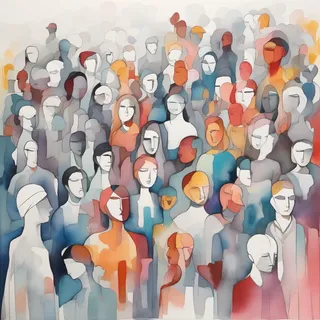Your deploy pipeline just broke. Again. The deadline is tomorrow, and your team lead is asking for status updates every hour. In moments like these, gratitude probably feels about as relevant as a floppy disk.
But here's the thing — practicing gratitude isn't about pretending everything is sunshine and rainbows when your code is burning. It's about building mental resilience for exactly these kinds of situations. Think of it as defensive programming for your brain.
Why Gratitude Actually Matters in Tech
Research consistently shows that people who practice gratitude experience better mental health, stronger relationships, and improved resilience. But in our industry, there's a more practical angle: gratitude directly impacts your ability to handle the inevitable chaos of software development.
The performance benefits:
- Better stress management during crunch time
- Improved team relationships (crucial for code reviews and collaboration)
- Enhanced problem-solving under pressure
- Reduced burnout and increased job satisfaction
- Stronger resilience when dealing with difficult stakeholders
Think about the developers you most enjoy working with. Chances are, they're not the ones constantly complaining about legacy code or impossible deadlines. They're the ones who can find something positive even in the worst situations — and that makes them better teammates and more effective professionals.
The Science Behind the Practice
Gratitude isn't just feel-good fluff. Studies show it literally rewires your brain, strengthening neural pathways associated with positive thinking and weakening those linked to stress and negativity.
For tech professionals, this translates to:
- Better cognitive flexibility when debugging complex issues
- Improved emotional regulation during high-pressure situations
- Enhanced creativity when solving architectural challenges
- Stronger interpersonal skills for leading teams and managing up
It's like optimizing your mental performance — who wouldn't want that?
Practical Gratitude Strategies That Actually Work
The Daily Commit Message Method
Just like writing good commit messages forces you to reflect on what you've accomplished, a daily gratitude practice helps you recognize what's working in your life.
The setup: Keep a simple text file (or note app) where you log one thing you're grateful for each day. Think of it as your gratitude commit log.
Pro tip: Be specific. Instead of "grateful for my job," try "grateful that my code review helped a junior developer understand async/await better." Specificity makes the practice more impactful.
The Retrospective Approach
Borrow from Agile methodology and do a weekly gratitude retrospective:
What went well this week?
- Which relationships improved?
- What challenges did I handle better than expected?
- What small wins am I overlooking?
What am I grateful for going into next week?
- What opportunities are ahead?
- Which people or resources support my goals?
- What skills or tools do I have access to?
The Slack Status Strategy
Set a daily Slack status that reflects something you're grateful for. It's a subtle way to remind yourself and potentially inspire your team. Examples:
- "Grateful for rubber duck debugging 🦆"
- "Thankful for strong coffee and clean code"
- "Appreciating helpful code reviews today"
The Problem-Solving Gratitude Method
When you're stuck on a particularly frustrating issue, try this reframe:
Instead of: "This legacy codebase is a nightmare." Try: "I'm grateful to have the skills to untangle this complexity."
Instead of: "Why is this client so demanding?" Try: "I'm grateful to work on challenging problems that push my abilities."
This isn't about toxic positivity — it's about finding practical appreciation even in difficult situations.
Gratitude for Tech Professionals: A Starter List
When you're building the habit, here are some tech-specific things worth appreciating:
Professional Development
- Access to endless learning resources (documentation, tutorials, Stack Overflow)
- The ability to solve problems that didn't exist a decade ago
- Working in an industry where continuous learning is expected and supported
- Having skills that are valued and transferable across industries
- The satisfaction of building something from nothing with just your brain and a computer
Tools and Technology
- IDEs that catch bugs before they reach production
- Version control systems that let you experiment without fear
- Cloud platforms that eliminate infrastructure headaches
- Open source communities that freely share knowledge and tools
- APIs that let you build on the work of others
Team and Community
- Code reviews that make you a better developer
- Pair programming sessions that solve problems faster
- Teammates who share knowledge instead of hoarding it
- Mentors who invested time in your growth
- The global developer community that helps solve problems 24/7
Work Environment
- Remote work flexibility that many industries can't offer
- Problems that require creativity, not just repetition
- The ability to automate boring tasks
- Seeing the direct impact of your work on users
- Working in an industry that values innovation and experimentation
Personal Growth
- The humbling experience of debugging your own code
- Learning to break complex problems into manageable pieces
- Developing patience through troubleshooting
- Building confidence by overcoming technical challenges
- The satisfaction of helping others learn and grow
Making It Stick: Implementation Tips
Start Small
Don't aim for a perfect gratitude practice right away. Start with one thing:
- Add a gratitude line to your daily standup notes
- Write one sentence in your commit message about what you appreciated that day
- Set a phone reminder to think of one thing you're grateful for at lunch
Connect It to Existing Habits
Attach gratitude to something you already do:
- Before opening your laptop each morning, think of one thing you're grateful for
- During your coffee break, appreciate one thing about your current project
- When shutting down for the day, note one person who made your work easier
Make It Relevant
Focus on gratitude that connects to your current situation:
- Grateful for the debugging skills that helped you solve today's issue
- Appreciative of the documentation that saved you hours of confusion
- Thankful for the teammate who answered your questions without judgment
The Long-Term Impact
After practicing gratitude consistently, you'll likely notice:
Better stress management: When deadlines loom, you'll have better perspective on what's actually important.
Improved relationships: Appreciating your teammates makes you a better collaborator and leader.
Enhanced problem-solving: A positive mindset helps you see solutions instead of just obstacles.
Increased resilience: You'll bounce back faster from setbacks and failures.
Greater job satisfaction: You'll find more meaning in your daily work, even during challenging projects.
The goal isn't to become unrealistically optimistic about everything. It's to develop the mental tools that help you thrive in an industry known for its complexity, pressure, and constant change.
Think of gratitude as one more tool in your toolkit — alongside your debugging skills, your problem-solving abilities, and your technical knowledge. It's there when you need it, making you more effective at the work you love.





